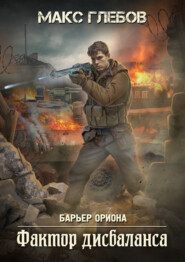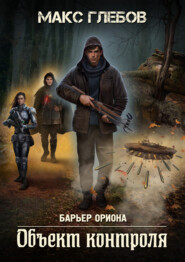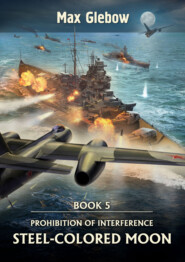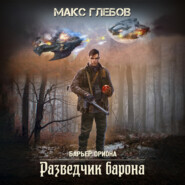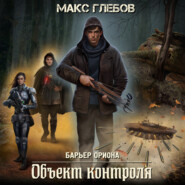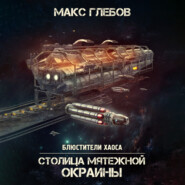По всем вопросам обращайтесь на: info@litportal.ru
(©) 2003-2024.
✖
Prohibition of Interference. Book 6. Samurai Code
Настройки чтения
Размер шрифта
Высота строк
Поля
A little lower down the slope, Nikiforov's machine gun fires several short bursts. The Lieutenant is saving his ammunition, but the nature of the battle is clear to him – he can't let the Japanese get too close. Shot! This time the officer is only wounded, but it's even better – the Japanese won't leave the commander behind.
The enemy have light mortars. Of course, they won't fire them in the thicket, but they may well try to shoot at us from the riverbank or from a small forest clearing. In fact, not only can they do it, but they are about to do it… Shot!
“Lena! The river bank. At three o'clock the position of mortar men!”
“Working on it.”
Shot! The Japanese are stubborn and almost devoid of any sense of fear. How can people be brainwashed into genuinely wanting to die on the battlefield? More eager to die in battle than to win! The ancient code of the samurai did not seem to require this, but its modern reading, seems to have changed the essence and meaning of the ancient doctrine somewhat.
The ring continues to tighten. This is no ordinary Japanese infantry, capable of confusion at the death of a commander. These are trained saboteurs who know how to act in such situations. Both of our machine guns are firing, no longer sparing ammunition. The Japanese answer mostly with rifles, and I try to keep a close eye on their machine gunners and stop their attempts to pin us to the ground. I don't always manage to do that, though. Shot! The Japanese submachine guns rattle away. The enemy has few of them, but they can be dangerous in close combat. I turn my attention to them, but there's no more time, new targets appear on the horizon.
The signal flares fly into the air – the enemy fighters are already on their way, and the Japanese indicate to the Falcon pilots their positions and the direction of the attack. Airborne targets are far more dangerous than Japanese soldiers with submachine guns, and I decide to take care of them. The familiar tingling in my palms suggests that my bio-implants have successfully taken over some of the work of pointing the weapon at the target. Shot! I wish I had a DShK heavy machine gun with its 12.7 caliber and crazy rate of fire, but I might as well have wished for a quadruple anti-aircraft gun. However, the Tokarev AVT-40 automatic rifle is also a very good piece in capable hands. Japanese fighters have no armor. The protection of the pilot is sacrificed to the speed and maneuverability of the aircraft, which means that my target is the cockpit. Shot! Shot!
Two Falcons lose control and crash into the ground, causing the remaining pair of Japanese planes to turn away from their target in an attempt to figure out where they're being fired from. I immediately shift my attention back to the approaching enemy soldiers. I no longer have to go back to the aerial targets – the swift silhouette of an IL is passing over the top of the hill. Kudryavtsev's pilots arrived on time, but there are very few of them. Wait, what kind of miracle is this?
“Letra, report! Why are there friendly marks in the southwest?”
“Don't get distracted. This is Claire Chennault's Flying Tigers air group. Americans. Mr. Roosevelt sends his regards.”
“Our pilots are about to take them for the Japanese and start tearing them apart!”
“They won't. Chennault coordinated his actions with Kudryavtsev through Chiang Kai-shek headquarters.”
Lebedev's radio operator fell into the grass next to me.
“Comrade Commander! General Kudryavtsev is on the line. Requesting targets for American allies.”
“Give it to me!” My face breaks into a predatory smile. “General, it's Nagulin!”
“Comrade Commander, the Americans are asking for targets.”
“Have them block the approaches from the northeast. I expect transport planes with Japanese paratroopers escorted by fighters from there. Bombers may come from there as well. The Japanese are preparing a big landing operation, and this is the start of it. Let the Allies deal with them. All we need here is paratroopers, we are hardly waving off local enthusiasts.”
“Copy that,” Kudryavtsev answers and hangs up, while I turn my gaze to the radio operator.
“Ivan, can you contact the ILs? We need to aim them at ground targets before the new fighters come in. It seems they've already dispersed the previous ones.”
No matter how strong in spirit the Japanese may be, there is a limit to everyone's toughness. The fuel-air bombs and cannon rounds in the back force them stop their attack and begin a disorderly retreat. The road ahead is clear.
We have five more wounded, three of whom need to be carried. Now we are definitely a walking hospital, but we can't sit still. We descend the hill and walk along the riverbed. The ILs fly off in the direction of Chongqing to refuel and re-supply, but they're immediately replaced by another five. Thirty minutes later, an American P-40 Warhawk, pulling a tail of black smoke, flies low over us. A little to the side we see another damaged plane – the Allies are clearly not bored. I'll be sure to tell Mr. Roosevelt my sincere thanks for his timely assistance and fly to Kunming to visit the Tigers with my pilots. We're going to strengthen our brotherhood in battle.
“You have visitors,” I hear a slight chuckle in Letra's obviously cheerful voice.
I unfold the virtual map before my eyes and see several more friendly markings right along the squad's path. I didn't expect that! We are still walking along the bank of the river, and about seven kilometers upstream four large motorboats of the strangest kind are moving toward us. I don't even know what to call these structures, but apparently here THIS is considered a combat boat. One can even see machine guns on the bow ends.
“It's the Chinese,” Letra explains. “Chiang Kai-shek's Special Forces are rushing to the aid of their allies.”
* * *
Lieutenant Commander Hirch took his eyes off the tactical hologram playing a recording of the recent battle. All nine mini-drones, which the automatic reconnaissance ship had released into orbit on the savage planet, had gathered over the coast of the East China Sea, so the battle could be seen in great detail.
“Does anyone else have doubts?” Hirch looked around at the officers of the destroyer.
“Not in the slightest,” the deputy armament officer said for everyone. “Only a fighter with bio-implants and a direct link to the orbital grouping can fire primitive hand-held weapons so effectively at targets that move quickly and are often completely covered by foliage. It's impossible for wild ones to do that in principle.”
“And he's the only one there, that's obvious too,” the senior engineer added.
“Lieutenant Cree, are your men ready?” Hirsch turned to the landing section commander.
“They're ready, Commander, just waiting for an order.”
“Command, Lieutenant. It is entirely up to you to develop a plan to take over the subject. Drones in orbit will work exclusively for the benefit of your squad. You must leave the destroyer immediately after we exit out of jump at the edge of the outer asteroid belt. The ship, after jettisoning the dropship, will move deeper into space and return to the boundary of the system only to pick you up after completing the mission.”
“Permission to perform!”
“Granted,” Hirch nodded and turned to the first pilot. “Is the jump calculation ready?”
“We can start accelerating, commander.”
“Let's do it. It's time to be clear about what's going on here.”
Chapter 5
“Comrade Stalin, the enemy used new tanks on the Leningrad front,” Marshal Zhukov decided to begin his report with the most alarming news. “The Germans managed to surprise us unpleasantly. These heavy machines didn't go forward. They took up positions on the slopes of the heights about a kilometer from our trenches and supported their lighter tanks and infantry. Neither 45-mm nor 57-mm ZIS-2 or T-34 tank guns could hit them from such a distance, but they would pierce the armor of our tanks without any problems. The enemy attack could only be stopped by massive use of assault aviation, but the Germans still broke through the first line of defense.”
“What else is known about these tanks?” Stalin looked hard at the Marshal.
“At the most approximate estimate, they weigh more than 50 tons. The thickness of the armor in the frontal part of the hull is hardly less than one hundred millimeters, otherwise the Germans would not behave so brazenly. The caliber of the gun is about 90 millimeters. Most likely it is an upgraded version of the 88mm anti-aircraft gun. The running performance is comparable to the Panzer IV, although their maneuverability is probably worse.”
“How many tanks were there?”
“Four tanks. I think that's just the beginning. Comrade Commander-in-Chief, the troops urgently need effective means to combat the enemy's new equipment. We expected the Germans to do something to counterbalance our KVs and T-34s, but we still couldn't assume that. Perhaps the 85mm anti-aircraft guns could handle their armor, but that is a last resort – they are always in short supply for anti-aircraft defense as it is.”
“Comrade Zhukov, brief Comrades Morozov and Ustinov with this information. We'll come back to this matter again tonight, but in the meantime, continue your report. I am interested in the preparations for the attack on Kiev.”
* * *
We moved farther and farther west. For all the questionable combat effectiveness of the Chinese riverboats, the help of Chiang Kai-shek's men came in handy. We were placed on the decks, and the wounded were finally able to rest from the constant jolting. In addition, they were immediately examined by an elderly Chinese man who informed us that he was a field surgeon. This doctor spoke Russian, with a monstrous accent, but at least he was understandable. After giving the necessary care to the most difficult patients, he took over for me.
The enemy have light mortars. Of course, they won't fire them in the thicket, but they may well try to shoot at us from the riverbank or from a small forest clearing. In fact, not only can they do it, but they are about to do it… Shot!
“Lena! The river bank. At three o'clock the position of mortar men!”
“Working on it.”
Shot! The Japanese are stubborn and almost devoid of any sense of fear. How can people be brainwashed into genuinely wanting to die on the battlefield? More eager to die in battle than to win! The ancient code of the samurai did not seem to require this, but its modern reading, seems to have changed the essence and meaning of the ancient doctrine somewhat.
The ring continues to tighten. This is no ordinary Japanese infantry, capable of confusion at the death of a commander. These are trained saboteurs who know how to act in such situations. Both of our machine guns are firing, no longer sparing ammunition. The Japanese answer mostly with rifles, and I try to keep a close eye on their machine gunners and stop their attempts to pin us to the ground. I don't always manage to do that, though. Shot! The Japanese submachine guns rattle away. The enemy has few of them, but they can be dangerous in close combat. I turn my attention to them, but there's no more time, new targets appear on the horizon.
The signal flares fly into the air – the enemy fighters are already on their way, and the Japanese indicate to the Falcon pilots their positions and the direction of the attack. Airborne targets are far more dangerous than Japanese soldiers with submachine guns, and I decide to take care of them. The familiar tingling in my palms suggests that my bio-implants have successfully taken over some of the work of pointing the weapon at the target. Shot! I wish I had a DShK heavy machine gun with its 12.7 caliber and crazy rate of fire, but I might as well have wished for a quadruple anti-aircraft gun. However, the Tokarev AVT-40 automatic rifle is also a very good piece in capable hands. Japanese fighters have no armor. The protection of the pilot is sacrificed to the speed and maneuverability of the aircraft, which means that my target is the cockpit. Shot! Shot!
Two Falcons lose control and crash into the ground, causing the remaining pair of Japanese planes to turn away from their target in an attempt to figure out where they're being fired from. I immediately shift my attention back to the approaching enemy soldiers. I no longer have to go back to the aerial targets – the swift silhouette of an IL is passing over the top of the hill. Kudryavtsev's pilots arrived on time, but there are very few of them. Wait, what kind of miracle is this?
“Letra, report! Why are there friendly marks in the southwest?”
“Don't get distracted. This is Claire Chennault's Flying Tigers air group. Americans. Mr. Roosevelt sends his regards.”
“Our pilots are about to take them for the Japanese and start tearing them apart!”
“They won't. Chennault coordinated his actions with Kudryavtsev through Chiang Kai-shek headquarters.”
Lebedev's radio operator fell into the grass next to me.
“Comrade Commander! General Kudryavtsev is on the line. Requesting targets for American allies.”
“Give it to me!” My face breaks into a predatory smile. “General, it's Nagulin!”
“Comrade Commander, the Americans are asking for targets.”
“Have them block the approaches from the northeast. I expect transport planes with Japanese paratroopers escorted by fighters from there. Bombers may come from there as well. The Japanese are preparing a big landing operation, and this is the start of it. Let the Allies deal with them. All we need here is paratroopers, we are hardly waving off local enthusiasts.”
“Copy that,” Kudryavtsev answers and hangs up, while I turn my gaze to the radio operator.
“Ivan, can you contact the ILs? We need to aim them at ground targets before the new fighters come in. It seems they've already dispersed the previous ones.”
No matter how strong in spirit the Japanese may be, there is a limit to everyone's toughness. The fuel-air bombs and cannon rounds in the back force them stop their attack and begin a disorderly retreat. The road ahead is clear.
We have five more wounded, three of whom need to be carried. Now we are definitely a walking hospital, but we can't sit still. We descend the hill and walk along the riverbed. The ILs fly off in the direction of Chongqing to refuel and re-supply, but they're immediately replaced by another five. Thirty minutes later, an American P-40 Warhawk, pulling a tail of black smoke, flies low over us. A little to the side we see another damaged plane – the Allies are clearly not bored. I'll be sure to tell Mr. Roosevelt my sincere thanks for his timely assistance and fly to Kunming to visit the Tigers with my pilots. We're going to strengthen our brotherhood in battle.
“You have visitors,” I hear a slight chuckle in Letra's obviously cheerful voice.
I unfold the virtual map before my eyes and see several more friendly markings right along the squad's path. I didn't expect that! We are still walking along the bank of the river, and about seven kilometers upstream four large motorboats of the strangest kind are moving toward us. I don't even know what to call these structures, but apparently here THIS is considered a combat boat. One can even see machine guns on the bow ends.
“It's the Chinese,” Letra explains. “Chiang Kai-shek's Special Forces are rushing to the aid of their allies.”
* * *
Lieutenant Commander Hirch took his eyes off the tactical hologram playing a recording of the recent battle. All nine mini-drones, which the automatic reconnaissance ship had released into orbit on the savage planet, had gathered over the coast of the East China Sea, so the battle could be seen in great detail.
“Does anyone else have doubts?” Hirch looked around at the officers of the destroyer.
“Not in the slightest,” the deputy armament officer said for everyone. “Only a fighter with bio-implants and a direct link to the orbital grouping can fire primitive hand-held weapons so effectively at targets that move quickly and are often completely covered by foliage. It's impossible for wild ones to do that in principle.”
“And he's the only one there, that's obvious too,” the senior engineer added.
“Lieutenant Cree, are your men ready?” Hirsch turned to the landing section commander.
“They're ready, Commander, just waiting for an order.”
“Command, Lieutenant. It is entirely up to you to develop a plan to take over the subject. Drones in orbit will work exclusively for the benefit of your squad. You must leave the destroyer immediately after we exit out of jump at the edge of the outer asteroid belt. The ship, after jettisoning the dropship, will move deeper into space and return to the boundary of the system only to pick you up after completing the mission.”
“Permission to perform!”
“Granted,” Hirch nodded and turned to the first pilot. “Is the jump calculation ready?”
“We can start accelerating, commander.”
“Let's do it. It's time to be clear about what's going on here.”
Chapter 5
“Comrade Stalin, the enemy used new tanks on the Leningrad front,” Marshal Zhukov decided to begin his report with the most alarming news. “The Germans managed to surprise us unpleasantly. These heavy machines didn't go forward. They took up positions on the slopes of the heights about a kilometer from our trenches and supported their lighter tanks and infantry. Neither 45-mm nor 57-mm ZIS-2 or T-34 tank guns could hit them from such a distance, but they would pierce the armor of our tanks without any problems. The enemy attack could only be stopped by massive use of assault aviation, but the Germans still broke through the first line of defense.”
“What else is known about these tanks?” Stalin looked hard at the Marshal.
“At the most approximate estimate, they weigh more than 50 tons. The thickness of the armor in the frontal part of the hull is hardly less than one hundred millimeters, otherwise the Germans would not behave so brazenly. The caliber of the gun is about 90 millimeters. Most likely it is an upgraded version of the 88mm anti-aircraft gun. The running performance is comparable to the Panzer IV, although their maneuverability is probably worse.”
“How many tanks were there?”
“Four tanks. I think that's just the beginning. Comrade Commander-in-Chief, the troops urgently need effective means to combat the enemy's new equipment. We expected the Germans to do something to counterbalance our KVs and T-34s, but we still couldn't assume that. Perhaps the 85mm anti-aircraft guns could handle their armor, but that is a last resort – they are always in short supply for anti-aircraft defense as it is.”
“Comrade Zhukov, brief Comrades Morozov and Ustinov with this information. We'll come back to this matter again tonight, but in the meantime, continue your report. I am interested in the preparations for the attack on Kiev.”
* * *
We moved farther and farther west. For all the questionable combat effectiveness of the Chinese riverboats, the help of Chiang Kai-shek's men came in handy. We were placed on the decks, and the wounded were finally able to rest from the constant jolting. In addition, they were immediately examined by an elderly Chinese man who informed us that he was a field surgeon. This doctor spoke Russian, with a monstrous accent, but at least he was understandable. After giving the necessary care to the most difficult patients, he took over for me.
Вы ознакомились с фрагментом книги.
Приобретайте полный текст книги у нашего партнера:
Приобретайте полный текст книги у нашего партнера:







